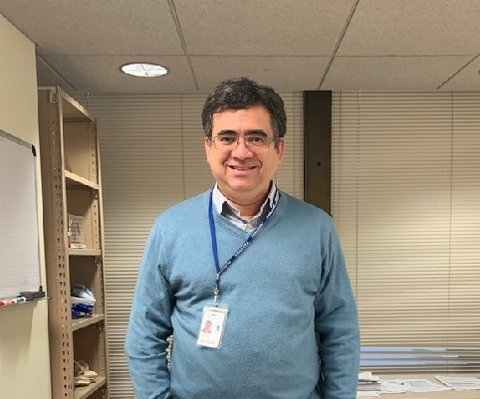PAHO/WHO Collaborating Centre Spotlight Series
Reference Number: ARG-33
Official Title: PAHO/WHO CC in Health Technology Assessment
Institution: Department of Health Technology Assessment and Economic Evaluation, Instituto de Efectividad Clínica y Sanitaria
Reference Number: CUB-26
Official Title: PAHO/WHO CC for the Regulation of Health Technologies
Institution: Subdirección de Equipos Médicos, Centro para el Control Estatal de Medicamentos, Equipos y Dispositivos Médicos
Reference Number: CAN-66*
Official Title: PAHO/WHO CC for Knowledge Translation and Health Technology Assessment in Health Equity
Institution: Institute of Population Health, Centre for Global Health, University of Ottawa
Reference Number: BRA-69
Official Title: PAHO/WHO CC for Healthcare Technology Management
Institution: Instituto de Engenharia Biomédica, Universidade Federal de Santa Catarina
Reference Number: MEX-24
Official Title: PAHO/WHO CC in Health Technology
Institution: Centro Nacional de Excelencia Tecnológica en Salud (CENETEC)
Reference Number: USA-423
Official Title: PAHO/WHO CC for Health Technology Management
Institution: Technical Services Partnership, University of Vermont
Category 4 (SP 14-19)
Outcome 8 (SP 20-25)
Mr. Alexandre Lemgruber, Regional Advisor, Health Technology Management, is the PAHO staff member who acts as the Region’s focal point to coordinate the collaboration between the institution and the Organization.
The main activities of these Centres include: (1) developing training courses; (2) developing best practice guidelines, manuals, and technical reports; (3) hosting technical workshops; (4) disseminating information; and (5) providing technical expertise.
The Centre at IECS developed a training course titled the “Evaluation, Selection and Rational use of Drugs and other Health Technologies” on PAHO’s Virtual Campus. The course was completed by 26 participants from across the Region and aimed to encourage the use of Health Technology Assessment (HTA) for decision-making processes concerning the incorporation of health technologies in health systems. The Centre has also provided opportunities for professionals from the HTA Network for the Americas (RedETSA) to participate in advance courses on HTA and economic evaluation. Lastly, the Centre developed a budget impact model to allow its users to conduct budget impact analysis on the incorporation of new technologies into health systems.
The Centre at the Instituto de Engenharia Biomédic (IEB-UFSC) developed a HTA Course in Medical Equipment and established guidelines to provide information on Health Technology Management (HTM). The Centre has also prepared manuals on biosafety for dental service and the evaluation of technological processes in primary care for infrastructure, human resources and technologies. In addition, the Centre published a report on Technological Solutions and HTM in Primary Health Care – Basic Equipment for Primary Health Units which includes tools and best practices of management and innovation in medical equipment.
The Centre at CECMED developed a virtual course (Spanish available, English available in 2020) on medical devices regulation focused on medical device’s regulatory programs, basic principles of conformity assessment and vigilance and post-market surveillance for medical devices. The Centre provided technical support to PAHO in managing the Report Exchange Program on Medical Devices (REDMA) which aims to allow the exchange of reports on adverse events of medical devices across the Region. Lastly, the Centre has shared technical expertise at various meetings in El Salvador (2018) and Russia (2019).
Mr. Lemgruber notes “the Centre’s expertise has been highly beneficial to strengthening the quality, safety and efficacy of medical devices within the Region and globally.”
The Centre at CENETEC has shared technical reports such as the Methodological Document of Evaluation of Technologies for Health, a Guide for the Clinical Evaluation of Medical Devices and a Guide for the Economic Evaluation to support the promotion of HTA use for decision-making. The Centre provided technical advice for Member States across the Region interested in generating agencies to address medical equipment management (MEM). For example, Costa Rica and Peru, have been collaborating with CENETEC, since 2012, to reproduce the framework of a MEM centre within their Ministries of Health. In terms of training, the Centre has developed a course in PAHO’s Virtual Campus aimed at health professionals.
The Centre at the University of Vermont developed a training course on PAHO’s Virtual Campus focused on healthcare planning and management for health professionals in the Region. Over 2 years, there have been 195 participants from 32 countries and territories enrolled in the course. The Centre held a three-day technical workshop on HTM focused on the planning, acquisition, maintenance, and support of medical devices in March 2019 for participants from 14 Caribbean countries. The Centre participated as key speaker in the 25th edition of RedETSA’s webinar program to discuss the importance of HTM and provided technical expertise for various meetings in Costa Rica (2019) and El Salvador (2018).
The Centre at the Institute for Population Health has provided expertise related to equity focused HTA for the HTA toolkit. The Centre also published an equity-focused reporting guideline in 2017 in collaboration with PAHO. This collaboration strengthened the importance of equity in the HTA process. Additionally, the Centre also supported RedETSA network HTA training and participated in several RedETSA activities, including annual meetings in 2018 and 2017, to bring expertise that benefited members of this Network.
Webnotes such as these serve to inform how Collaborating Centres are contributing to the Organization’s priorities and mandates.
*Subsequent to this Webnote, this Centre has expired.


